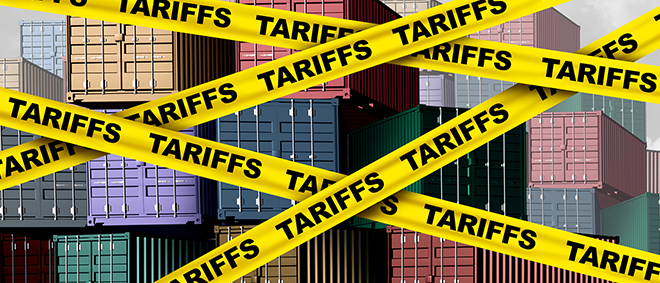This is next-level corruption. Howard Lutnick, the current Commerce Secretary, is championing tariffs as a cornerstone of U.S. trade policy. Meanwhile, his sons at Cantor Fitzgerald are building a financial instrument designed to profit from those very tariffs.
The scam works like this:
- Small businesses get crushed by tariffs they can’t afford.
- Fighting them in court takes years—time most don’t have.
- Cantor Fitzgerald swoops in with an offer: sell us your right to a future refund for pennies on the dollar (20–30 cents).
- If the tariffs are overturned, Cantor Fitzgerald collects the full payout, pocketing massive profits.
The father creates the wreckage; the sons monetize the rubble. It’s textbook conflict of interest—profiting not just from policy, but from the desperation that policy creates. Imagine a pitcher intentionally throwing a wild, losing pitch so his family, who bet on him screwing up, gets rich. That’s Lutnick’s America: sabotage the team, cash out on the side.
And the sad truth? This isn’t new. It’s just the same old grift with a shinier shell.
In the late 19th century, railroad barons did the same thing, inflating costs with government-backed monopolies while speculators sold watered stock. The East India Company perfected it centuries earlier, weaponizing trade policy to extract profit while the state underwrote their risks. In the 20th century, “structural adjustment” programs from the IMF forced debtor nations into austerity, letting Western firms scoop up state assets for pennies.
The mechanics change, but the logic remains: create scarcity or chaos, then buy desperation at a discount. Loot not just resources, but futures.
Late-stage capitalism has simply brought the model home. Hedge funds learned how to buy companies just to strip them for parts—self-cannibalism as strategy. Now the same mindset is being applied to the U.S. itself. Tariffs aren’t a policy mistake to be corrected; they’re a revenue stream for those positioned to profit from collapse.
And what makes this moment uniquely dangerous is the horizon. The wealthy already know climate change will upend everything. Instead of treating governance as preparation for survival, they’re treating it as liquidation. Bunkers, private islands, seed vaults, drone arsenals—the “prepper economy” is thriving at the very top. Why build resilience for the many when you can hoard resilience for the few?
That’s why Trump, chaos, and distraction are useful. Every cycle of outrage keeps the public focused on the circus while the tent is being stolen. AI algorithms feed us division, social media fragments solidarity, and the law—hollowed out by decades of deregulation and capture—no longer offers consequence.
Lutnick’s tariff scam is not an aberration. It’s a symptom. We’ve reached the stage where corruption isn’t just tolerated; it’s operationalized. It becomes the infrastructure of governance.
History tells us what comes next. Empires that treat their own people as raw material to be stripped for profit don’t last. But before they collapse, they usually make life hell for everyone caught in the gears.
So what do we do?
We resist, but not alone. These kinds of schemes thrive on isolation and despair. The counterweight is collaboration.
- Name it: Don’t let the corruption hide behind jargon. Say plainly: this is looting. This is sabotage for profit.
- Support each other: When small businesses and communities are targeted, mutual aid and cooperative models matter. If the system is designed to strip, we have to create systems that share.
- Push for structural reform: Demand real conflict-of-interest laws with teeth. No official should profit from policies they shape. Ever.
- Stay focused: Outrage is easy to manufacture; solidarity takes work. When the headlines scream “TRUMP TRUMP TRUMP,” ask: what’s being stolen while we’re distracted?
- Use technology differently: If their AI feeds division, we can use the same tools to connect, organize, and amplify. Every filter bubble is a choice point—either prison or meeting ground.
For me, this is where leadership starts—naming the game, refusing to play by its rigged rules, and helping others find space to breathe and act together. I don’t have all the answers. But I know that despair is the outcome the system wants from us. And I know that solidarity—messy, imperfect, human solidarity—is the one thing that consistently derails the plans of those who think they can hollow out the world and walk away rich.
History tells us that empires collapse when corruption becomes infrastructure. But history also tells us that what replaces them depends on whether ordinary people are willing to imagine and insist on something better. That’s the work ahead.


